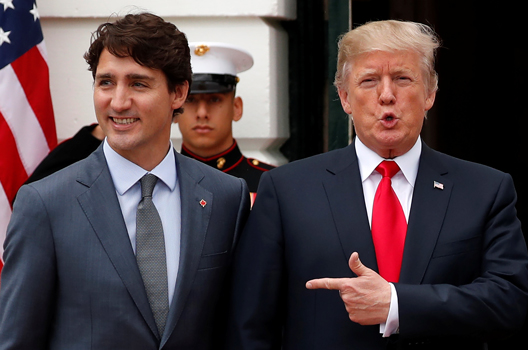 If representatives from the United States, Canada, and Mexico are unable to come to an agreement in the fourth round of negotiations on the North American Free Trade Agreement (NAFTA), the consequences could be dire for millions of US citizens whose livelihoods depend on the success of the trade deal, according to Atlantic Council experts.
If representatives from the United States, Canada, and Mexico are unable to come to an agreement in the fourth round of negotiations on the North American Free Trade Agreement (NAFTA), the consequences could be dire for millions of US citizens whose livelihoods depend on the success of the trade deal, according to Atlantic Council experts.
The close economic relationship between the three countries has led to unprecedented levels of trade and co-production of goods. “What that really means is ‘jobs,’” says Katherine Pereira, associate director of the Atlantic Council’s Adrienne Arsht Latin America Center. For as many as fourteen US states, 25 percent of their trade is with Canada, and for another fourteen who trade with Mexico that number is 13 percent. Essentially, millions of Americans stand to lose their job if NAFTA is ended.
On October 11, the United States, Canada, and Mexico entered the fourth round of NAFTA negotiations in Washington, DC. NAFTA became a controversial topic during the 2016 US presidential election, as then-candidate US President Donald J. Trump made the deal the target of repeated rhetorical attacks, calling it “the worst trade deal maybe ever,” and vowing to renegotiate it.
Since Trump took office last November, three rounds of negotiations have occurred, in Washington, Ottawa, and Mexico City, respectively. Canadian Prime Minister Justin Trudeau visited the White House on the first day of the fourth round seeking a new “fairer trade” deal for the three countries.
Trump has suggested dropping Mexico from NAFTA and enacting a bilateral agreement with Canada. Trudeau remains committed to a three-way pact.
“There are a number of very contentious issues that are going to be put on the table in Washington this week,” said Jason Marczak, director of the Atlantic Council’s Adrienne Arsht Latin America Center, during a Facebook Live discussion with Pereira. Both experts spoke to the benefits of NAFTA, and of the negative impact that its demise would bring to unwitting US citizens who may not realize the close relationship between the trade deal and their jobs. However, Marczak and Pereira also acknowledged the necessity of revising certain parts of the trade agreement.
“NAFTA is incredibly comprehensive, but it’s also old,” said Marczak, adding: “it sets up the rules of trade based on how we traded back in the mid-90’s but not necessarily how the economy has advanced today.” NAFTA entered into force January 1, 1994.
“[E-commerce] provisions are not included in the agreement,” added Pereira, “so they’re looking at ways to update [it], and also touch on sectors that haven’t benefited or states that maybe suffered.” She continued: “The future of where the economy is today and where its increasingly going is service trade, and this is I think an important moment to reflect that.”
Marczak and Pereira argued that not only has NAFTA created millions of jobs for US citizens and made goods like produce and automobiles more affordable for citizens of all three participating countries, it has also facilitated a close diplomatic relationship between the three countries that has been beneficial. Pereira described how the United States, Mexico, and Canada cooperate on issues ranging from border control to cultural exchange.
“I think there’s just a lot more at risk here that we’re not considering or sometimes don’t realize is all connected to that strong economic relationship,” said Pereira.
With all the instability in different areas of the world today, Marczak cautioned, “the last thing we should be doing is further adding to that instability.”
Caleb Darger is a communications intern at the Atlantic Council. You can follow him on Twitter @CalebDarger.
Image: President Trump welcomes Canada's Prime Minister Justin Trudeau on the South Lawn before their meeting about the NAFTA trade agreement at the White House.
